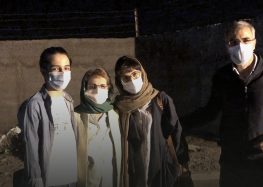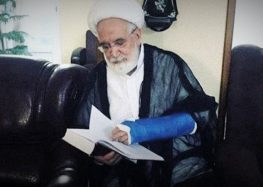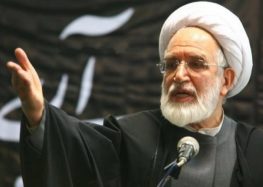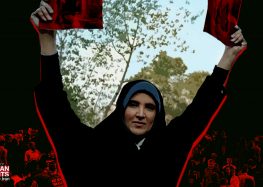Rouhani VP Reaffirms Promises to Mehdi Karroubi After Pushback by Judiciary
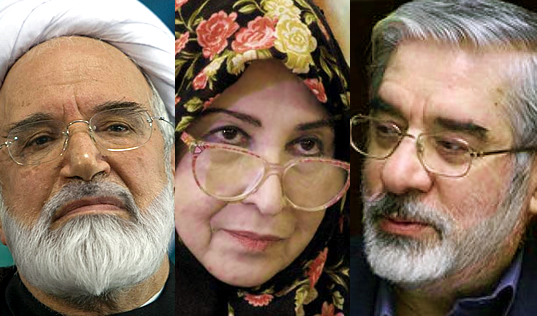
Iranian Vice President Eshaq Jahangiri has publicly affirmed promises made by officials of the Rouhani government to detained political leader Mehdi Karroubi after a senior judicial official disputed them.
On August 22, 2017, Jahangiri assured reporters that security agents will be withdrawn from Karroubi’s home, where he has been detained without trial since February 2011: “I am sure this will happen and the security authorities will make statements if necessary and inform his family.”
Karroubi, a 79-year-old former presidential candidate, agreed to end his hunger strike after one day on August 17 after two ministers visited him in the hospital and agreed to his demands for the agents to leave his home and a public trial.
On August 20, judiciary spokesman Gholam-Hossein Mohseni-Ejei rejected the report that agents would leave Karroubi’s home as “total lies.” Ejei, who is also the deputy judiciary chief, added that there is no plan to put Karroubi on trial with fellow detained opposition leaders Mir Hosseini Mousavi and his wife Zahra Rahnavard.
The three have been detained under house arrest for more than six years for peacefully disputing the result of the 2009 presidential election and leading the mass protests that came to be known as the Green Movement.
Ejei said no trial will be held until the Supreme National Security Council (SNSC), chaired by President Hassan Rouhani, decides otherwise.
“If the SNSC decides to end the house arrests, the Judicial Branch will act according to its duties,” he said at a press conference.
Karroubi’s declining health, which has resulted in three hospitalizations in the past two months, has reinvigorated calls for his freedom and pressure on Rouhani to secure the trios’ release.
“Society will not rest until fairness is applied,” said Deputy Parliament Speaker Ali Motahari in a letter to Ejei on August 21.
“One of those under house arrest [Karroubi] has invoked the Constitution and is demanding a fair trial in open court,” added the conservative MP, who has spoken out against the extrajudicial house arrests for years. “Why are you opposing it? Does this not give the impression that you are afraid the truth might be exposed? It is best to submit to the law.”
“More than six and a half years have passed since the house arrests were imposed and Mr. Karroubi is now in very poor health,” said the leader of the women’s block in Parliament, Parvaneh Salahshour, during an open session on August 22.
“Unfortunately, matters deteriorated to the point that Sheikh Mehdi Karroubi had to start a hunger strike to demand a fair trial… He stopped his hunger strike, but his health situation remains very dangerous,” she said.
“Mr. Mousavi and Ms. Rahnavard’s health is also very worrying,” she added. “Under the guidance of its leader, the Islamic Republic of Iran is strong enough to resolve this matter with ease.”
Prominent former reformist President Mohammad Khatami (1997-2005) also repeated his call for Iranian Supreme Leader Ali Khamenei to end his reported opposition to ending the house arrests.
“On behalf of freedom seekers, I beseech the great leader to issue an order to resolve the house arrests,” he tweeted on August 20. “This is in the interest of the state and a sign of the country’s security and strength.”



